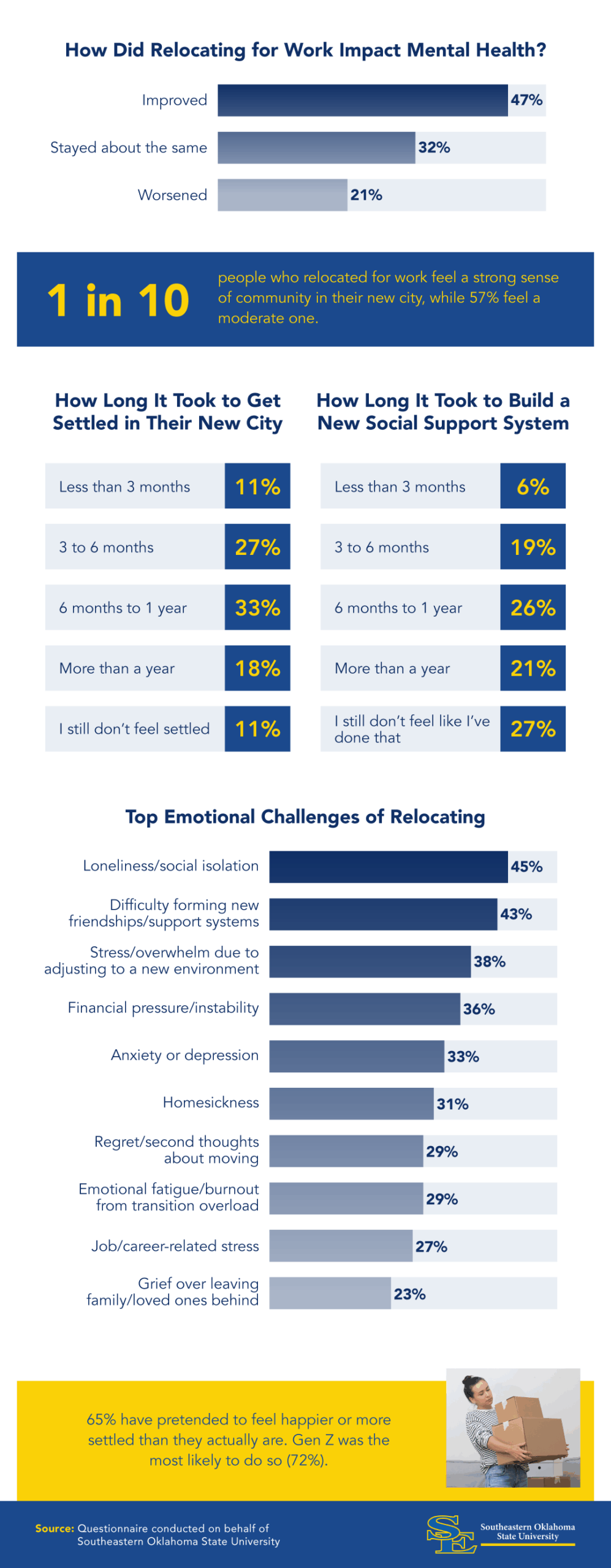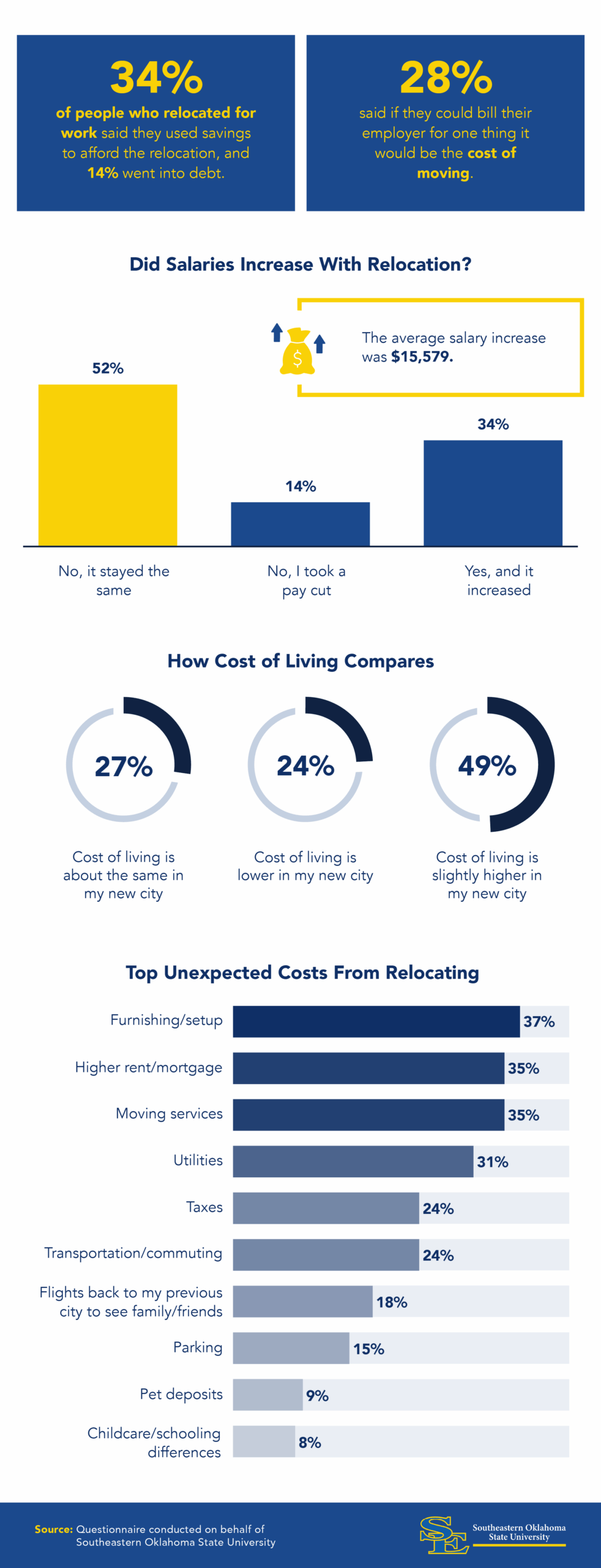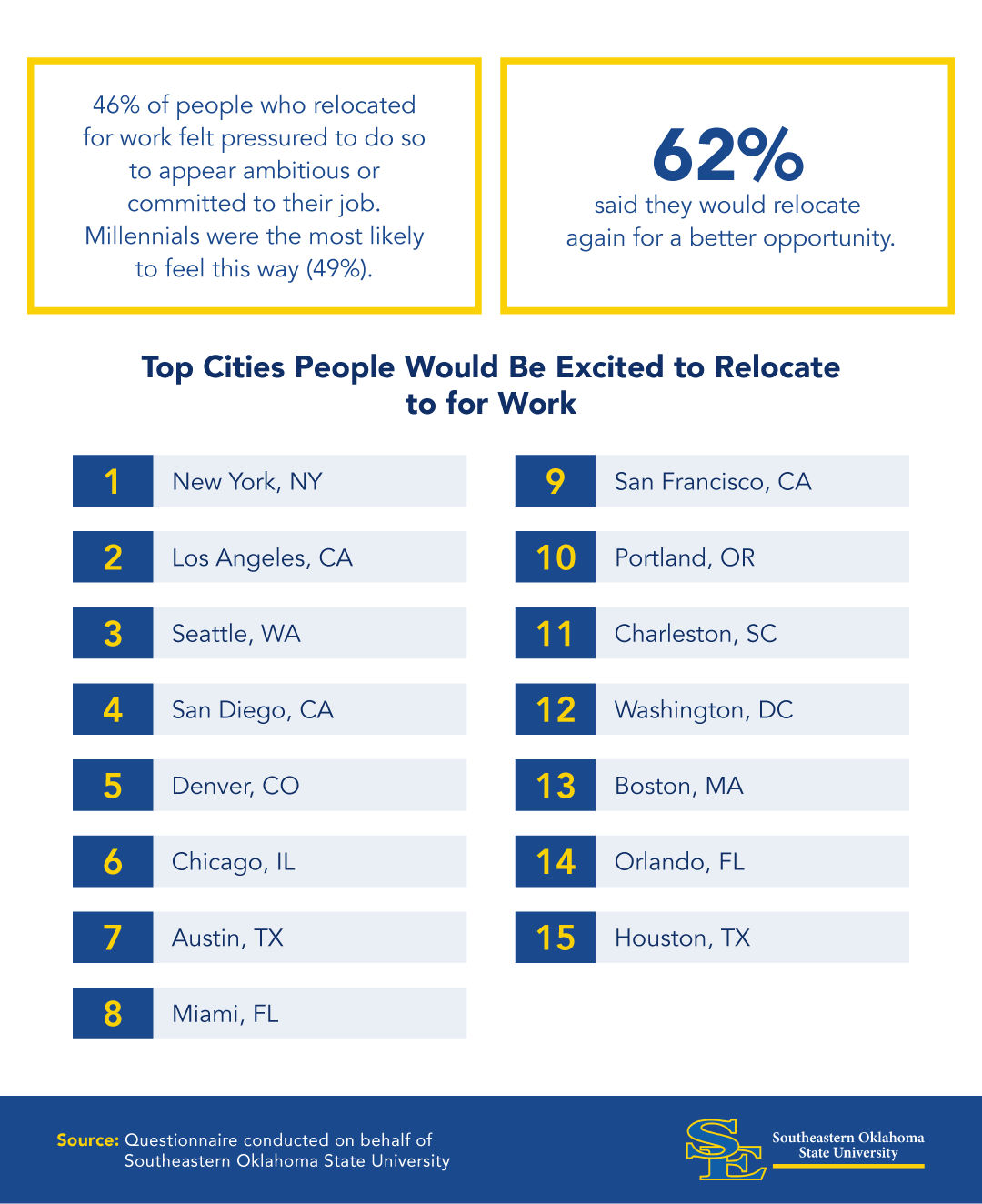
Relocating for a new job can be a leap toward fresh opportunities, but also an unexpected test of resilience. While many professionals see moving as a chance to advance their careers, the realities of starting over in a new city often bring emotional, social and financial challenges that aren’t part of the initial pitch.
A recent questionnaire of 761 people who relocated for work in the past five years found that many gained higher pay or improved mental health, yet also faced rising living costs, depleted savings and feelings of disconnection. The following results explore the complex mix of rewards and trade-offs of moving for work.
Key Takeaways
- Nearly half of professionals who relocated for work (47%) say the move improved their mental health.
- Over one in three people who relocated for work (34%) received a salary increase, but 14% took a pay cut.
- 34% had to dip into savings to afford the move, while 14% went into debt.
- New York City, Los Angeles and Seattle top the list of most desirable cities to relocate to for work in 2025.
The Emotional Toll of Relocating for Work
Relocating for work can provide a new professional path, but the personal transition isn’t always smooth. Many reported improvements in mental health, while others are still struggling to settle into new communities.

Nearly half of respondents (47%) said their mental health improved after the move. Gen Z respondents were even more likely to report a positive shift, with 52% saying their mental health got better. In contrast, 21% of all respondents said their mental health declined.
Despite these gains, only 10% said they had a strong sense of community in their new location. Over a quarter (27%) admitted they still hadn’t formed a new social support system, leaving many feeling disconnected. Many respondents (64%) said they have pretended to feel happier or more settled than they really are.
The Hidden Cost of Relocating
While moving for a job may offer financial rewards, many respondents found that the actual costs outweighed the benefits, at least in the short term.

Thirty-four percent of people who relocated for work received a salary increase, and 14% accepted a pay cut to make the move. Among Gen Z and Millennial respondents, one in three saw a pay bump.
Those who received a raise gained an average of $15,579, but nearly half (49%) said their cost of living increased in their new city. These higher living costs often undercut financial progress and create additional strain.
To fund their move, 34% dipped into savings, and 14% took on debt. Many also encountered unexpected expenses: 37% were hit with furniture or setup costs, while 35% reported rent or mortgage payments that exceeded expectations.
Despite the Challenges, Many Are Still Willing to Move for the Right Opportunity
Even with financial strain and emotional ups and downs, a majority of respondents remain open to relocating again, but their motivations have shifted.

Over half of respondents (62%) said they would relocate again for work if the opportunity was right. This willingness suggests that for many, the long-term benefits of career mobility still outweigh the costs, even if their first move came with trade-offs.
Some also felt pressured to move for reasons beyond career advancement. Forty-six percent said they relocated to appear more ambitious or committed to their job. Millennials were the most affected by this pressure, with 49% reporting it as a motivating factor.
When asked where they would want to go next, respondents ranked New York City, Los Angeles and Seattle as their top destinations. Gen Z showed the strongest interest in Los Angeles and Chicago. Among all respondents, San Diego, Denver, Chicago and Austin also attracted attention, highlighting a broad geographic appeal from both coasts and central hubs.
Redefining Relocation and Ambition
Relocating for work remains a calculated gamble. For some, it delivers meaningful career gains, a boost in well-being or a fresh start in a desirable city. For others, the move brings higher costs, unexpected debts and a struggle to find community. The questionnaire findings show that the decision to relocate is rarely clear-cut and that success often depends on weighing financial realities alongside personal priorities.
Methodology
A questionnaire of 761 Americans who relocated for work in the past five years, fielded on behalf of Southeastern Oklahoma State University, explores the emotional, financial and social impact of moving for career opportunities. The survey was conducted via the CloudResearch Connect platform. The generational breakdown of respondents was Gen Z (20%), millennials (61%), Gen X (18%) and baby boomers (1%).
This is a non-scientific, exploratory survey designed to examine behavioral and attitudinal trends. It is not intended to represent all working professionals.
About Southeastern Oklahoma State University
Southeastern Oklahoma State University offers online MBA programs that allow working professionals to advance their careers without uprooting their lives. These flexible, affordable programs help students strengthen leadership and business skills while continuing to work and stay in their communities. With multiple specializations, learners can tailor their MBA to match career goals — no moving van required.
Fair Use Statement
This content may be shared for noncommercial purposes. Please include a link back to Southeastern Oklahoma State University to ensure proper credit and attribution.